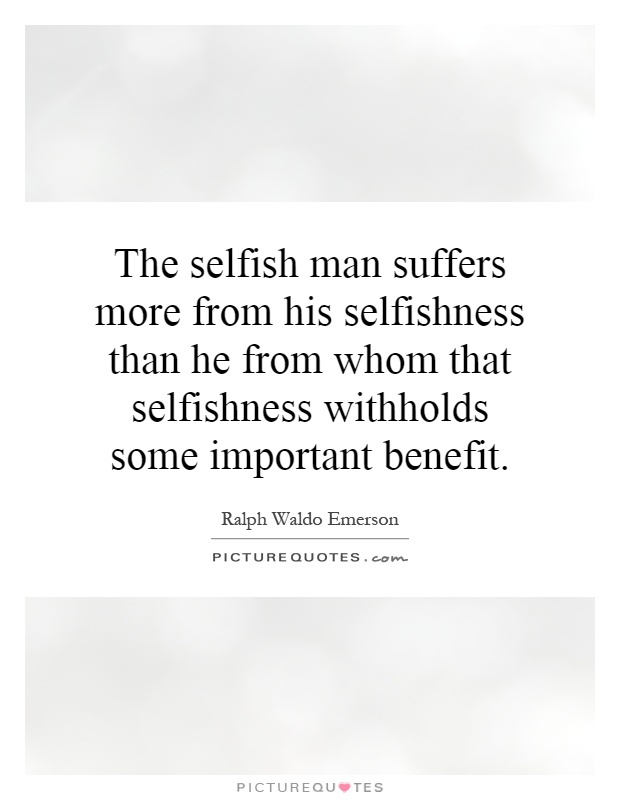The selfish man suffers more from his selfishness than he from whom that selfishness withholds some important benefit

The selfish man suffers more from his selfishness than he from whom that selfishness withholds some important benefit
Ralph Waldo Emerson, a renowned American essayist, lecturer, and poet, was a firm believer in the idea that selfishness ultimately leads to suffering. In his essay "Self-Reliance," Emerson explores the concept of individualism and the importance of trusting one's own instincts and beliefs. He argues that those who are selfish and self-centered ultimately suffer more than those who are generous and selfless.Emerson believed that selfishness is a form of self-imposed isolation that prevents individuals from forming meaningful connections with others. By prioritizing their own needs and desires above all else, selfish individuals cut themselves off from the joys of human connection and empathy. They become consumed by their own desires and ambitions, leading to a sense of emptiness and dissatisfaction.
Furthermore, Emerson believed that selfishness ultimately leads to a lack of fulfillment and purpose in life. When individuals are solely focused on their own needs and desires, they miss out on the opportunity to make a positive impact on the world around them. By withholding important benefits from others in order to satisfy their own selfish desires, they ultimately deprive themselves of the satisfaction that comes from helping others and making a difference in the world.
Emerson's philosophy on selfishness is best summed up in his famous quote: "The selfish man suffers more from his selfishness than he from whom that selfishness withholds some important benefit." This quote highlights the idea that selfishness not only harms others but also ultimately leads to the self-destruction of the selfish individual. By prioritizing their own needs above all else, selfish individuals miss out on the true joys of life and ultimately suffer as a result.












 Friendship Quotes
Friendship Quotes Love Quotes
Love Quotes Life Quotes
Life Quotes Funny Quotes
Funny Quotes Motivational Quotes
Motivational Quotes Inspirational Quotes
Inspirational Quotes